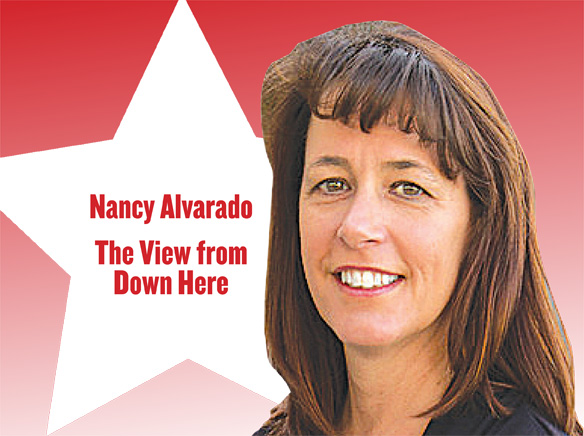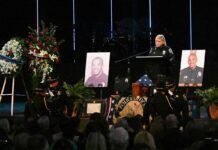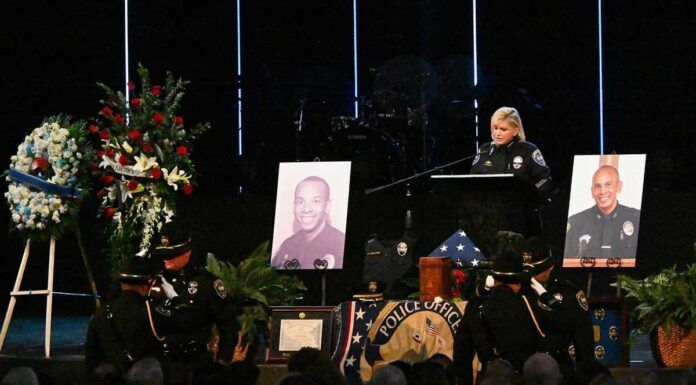“One country doesn’t have more hardships than another; they’re just different.”
Yazi certainly knows about countries with hardships. As refugees dominate the news cycle, she is eager to share her story.
Born into a wealthy family in Iraq, her early life was luxurious. Although she doesn’t remember her family’s mansion, chauffeurs, or the nanny who cared for her, she knows that her father’s work as a civil design engineer for Saddam Hussein’s palace provided a nice life. However, when palace construction was finished, Yazi’s father had three options: join the Ba’ath party, flee, or be killed. As a Christian, joining the regime wasn’t an option, so the family fled Iraq in 1979 when Yazi was three.
To relatives, they whispered that they were leaving; anything they left behind was up for grabs. They didn’t dare tell their beloved nanny their plans; as a Muslim, she could put them in danger. Instead, they told her they were going to spend a few days at an amusement park.
Instead they began a whirlwind tour of the Middle East and Europe. After four months in Jordan “to catch our breath,” Yazi’s family bounced from country to country, finally landing in Greece. “In the 1980’s, Greece was extremely democratic,” Yazi explains. “They let everyone in.” Immigrants could stay for six months and one day.
In Greece, Yazi’s father quickly found the “chekhana,” a meeting place for older Chaldean Christians men to gather, smoke hookah, and play backgammon. There, he met a gracious Chaldean man who offered to share the two-bedroom apartment his family occupied. Yazi’s family of four moved in with his family of five. “Once the kids were in bed, the parents would play cards, the Iraqi version of gin rummy, and the couple who lost that night treated the other family to ice cream the next day.”
Yazi’s parents planned to immigrate to the US. However, the official who reviewed their paperwork at the US consulate insisted that Canada was a better place to raise children. As they left Greece for Canada, a new wave of Chaldeans was coming in, children of war. They fled a land marked by fighting, where the risk of stepping on explosives or exploding bombs was constant. Yazi recognizes her fortune in leaving Iraq when they did. “We fled for our lives, but they lived war trauma.”
Yazi arrived in Canada casually trilingual. Her native tongue is Aramaic, she spoke Arabic by necessity, and picked up Greek by exposure. In kindergarten she struggled to learn English. Shown a picture of an apple in her ESL class, Yazi remembers excitedly shouting, “Khaboosha!”
Their early life in Canada was difficult. Although they’d smuggled money out of Iraq, the cost of starting over was high. A basement apartment was home, the kind of housing that Yazi observes, “If there was a fire, we probably would’ve been dead.” When she was in junior high school, Yazi’s family moved out of what she calls “the immigrant quadrant” and into an upper middle-class neighborhood and built their first home.
Yazi is proud of her family’s trajectory. “We went from riches in Iraq to rags, to middle class, and back to riches. We worked hard and were good with money. It wasn’t luck.” She credits much of her success to a traditional Iraqi upbringing. Her parents were strict, with high standards. “Their raising us Iraqi is why I’m so successful: good with money, a strong work ethic. They showed us you can come from something to nothing to something.”
When Yazi was 22, she moved to the US with her family, seeking a warmer climate. An H1B visa allowed her to legally work as a teacher in an alternative school, although the restaurant job she took to supplement her income was not legal under the terms of her visa. While waiting for her green card, she taught in Arizona and New York, before settling in San Diego, home to the third largest Chaldean community in the world. Today she is a US citizen and a successful real estate investor.
Decades after fleeing the country of her birth, Yazi is grateful to have escaped the scars of war that haunt many of her countrymen. Her views on US involvement in Iraq are conflicted. “I used to be 100% on board, but ISIS never would have happened if Saddam Hussein were alive. Crazy people like that need a dictator to keep order.”
Yazi is thankful for the opportunities that living in the US afforded her and her family. She knows that while luck played a part, grit and determination were instrumental to her family’s success.
“No one is responsible for you. You’re responsible for yourself. Work and make something of yourself. No one owes you anything. You have to earn things; that way you’ll appreciate them.”















